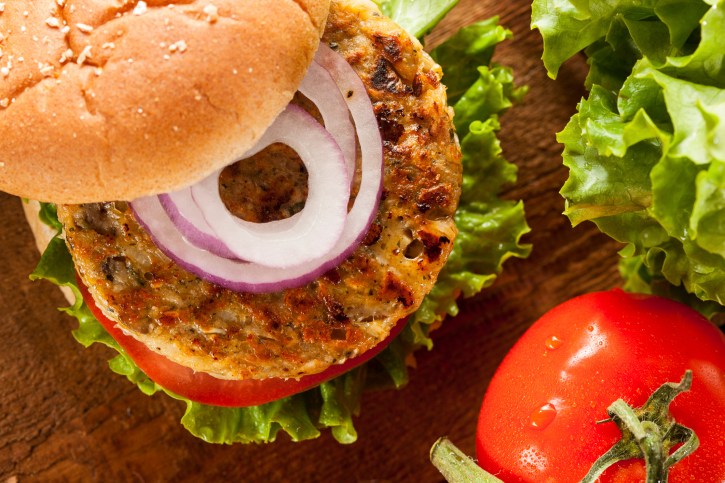3 Steps To Make More Mindful Food Choices

Have you ever stopped to wonder what exactly you expect to get from your food? Why do we reach for that sugary snack when we know that sooner or later, it's going to affect us? If we ate strictly to achieve the desired nutrients our bodies needed, a plate of lima beans would be just as appealing as a batch of freshly baked cookies.
Many of us think, "I'm going to really focus on healthy eating and exercise," but if you haven't addressed why you weren't making mindful and healthy choices already, the cycle will continue. There'll always be something, someone or somewhere that gives cause to justify unhealthy food choices. So why do we make the choices we do when it comes to food?
Perhaps we're searching for an emotion that food can temporarily provide. The key is to ask ourselves what we're really searching for. Excitement? Entertainment? Stress relief? A sense of belonging? The answer will be different for everyone. For many of us, food is emotion. So how do we separate what we need physically from what we need emotionally and spiritually?
There's no one right answer, but simple mindfulness can help. Managing the "why" behind eating habits can help us make healthier food choices. If we can address the reason we're reaching for unhealthy food, it'll be easier to start making healthier choices. Here tips for taking the emotion out of food and moving towards mindful eating.
1. Manage the "why."
Asking "What emotion or need am I trying to address?" and "Can I accomplish this by doing something other than eating?" will help bring an awareness. You might be surprised to find that often it's an emotion you're after, not food.
If you're stressed, go for a walk, take a relaxing bath, listen to soothing music, have a cup of tea or just breathe deeply for a few minutes. If you're dealing with boredom, dive into a good book or research a new hobby. Take a minute or two and jot down some things you could do that would fulfill your emotional need instead of eating.
2. Learn to procrastinate.
Sounds crazy, but it works. If you're ready to reach for a doughnut or a bag of chips, do something else for ten minutes. Re-evaluate how you feel after that time period and then decide if what you really want is food or a feeling. Often times we get so wrapped up in what we're doing that we forget about even wanting food in the first place.
3. Keep a food log.
It's a great way to be more mindful of food choices. Start with a regular diary, journal, phone app or even an ongoing letter to yourself. Just being aware is the most important part in finding what emotional or spiritual void you're trying to fill with food.
My clients often make insightful revelations using the journaling technique. One recurring theme many have is realizing they're people pleasers. As people pleasers, it's hard to turn down someone's home baked goods or birthday cake at the office. The fear of hurting someone's feelings is greater than the fear of what they're doing to their health.
Asking yourself, "Am I hungry for food or an emotion?" will help in the process of becoming a more mindful eater. If the need is hunger, eating is a good solution. If the need isn't hunger, then trying to figure out the "why" and choosing a way to meet that need can help you nourish yourself in a healthier way.
Photo Credit: Stocksy
-
How to Break the Dieting Cycle
Many Americans are trapped in a cycle of
-
Calorie Burning Techniques
Are you tired of trying to lose weight but just can’t seem to? P
-
Who Should Take a FDA Approved Weight Loss Pill?
The Food and Drug Administrations approval can take a lot of stress o
-
The Good and Bad about a Fat Loss 4 Idiots Review
Regardless of what exactly is being reviewed, the review websites h
-
Fast Weight loss Diet – Simple Tips And Tricks
A fast weight loss diet plan is worth its weight in gold once you find
-
Weight Loss Motivation Mastering The Motivation To Stay Fit
Have you ever just felt like you were doing everything you were suppos
- DON'T MISS
- Gourmet Delivered Meals - An Enjoyable Weight Loss Meal Plan
- Weight Loss vs Fat Loss
- Seniors: Add this to your diet for optimal health
- Super Healthy Diet Plan!
- Factors To Help You Decide If Bariatric Lap-Band Surgery Is Right For You
- This HIIT Workout Will Get You Lean & Toned In 12 Minutes
- Turn Your Focus on Your Health by Losing Fat
- Bicep Curls For Elderly People
- Keep the Unwanted Weight Off: Bicycle
- What Are Main Things You Need To Know In A Weight Loss Boot Camp?




